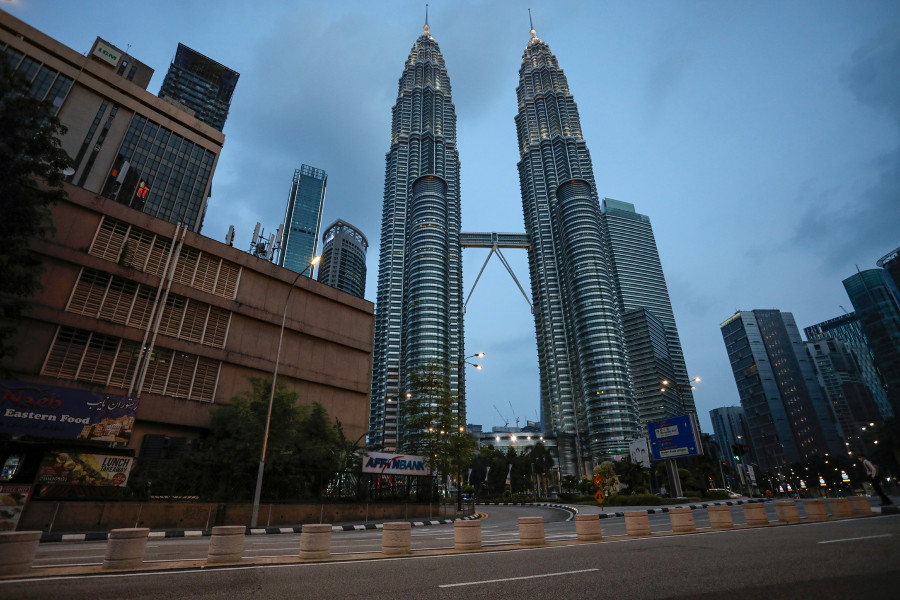National
Nepali workers forced to work even under lockdown in Malaysia
A large number of Nepalis, already reeling from the Covid-19 outbreak, are being asked to go out and work against their will.
Chandan Kumar Mandal
As the number of confirmed cases of Covid-19 spiked in Malaysia, S had been wanting to stay safe indoors.
With the lockdown announced from Wednesday, the Nepali migrant worker, along with his compatriots, was relieved that he could finally remain indoors safe from infection.
“As we couldn’t go out, all of us were in self-quarantine since last Wednesday,” S told the Post from Penang, Malaysia. “We thought we would be safe now.”
But it was not to be. His company—PPH Printing & Packaging Sdn Bhd—has asked all workers to report to their workplace from Monday even as the lockdown continues.
“We are concerned about our safety. Almost everything is closed across Malaysia,” said S, who wanted neither his first name or surname mentioned, fearing reprisal from his employer. “How can we go out and work when we are put at risk of getting infected?”
Malaysia, the most affected Southeast Asian country by the global pandemic, has reported over 1,300 cases of Covid-19. On Saturday alone, the country, where 500,000 Nepalis live, reported three Covid-19 deaths, bringing the toll to six.
Following the rapid spread of coronavirus, the Malaysian government has enforced a two-week lockdown until March 31. The government has banned mass gatherings, and allowed only essential services such as supermarkets, banks, gas stations and pharmacies to stay open. Workers are being forced to put in reduced hours.
As per the ‘restriction movement order’, all Malaysians have been barred from travelling abroad and those returning from overseas must undergo a health inspection and self-quarantine for 14 days. All schools and government and private offices have been asked to shut.
Around 45 Nepalis work for PPH Printing, which makes paper cartons and packaging boxes. All of them have been notified to report to work.
“Public movement is restricted on the streets as well. Security forces catch us when they spot us on the road,” said S. “But our company wants us to report to the work as if nothing has happened,” said S.
Other Nepali workers in the same company are also reluctant to resume work on Monday.
“The employer has been asking us to operate machines,” said B, another Nepali worker, requesting anonymity fearing consequences. “I don’t want to go to work in this situation. Everyone is scared to go out, let alone work in a group.”
According to him, other labourers have already started working in fear of action the company might take against them for insubordination.
“If our company were making medicine, we could understand its need,” said B. “But we make cartons. I don’t understand why they want to risk the lives of 250 workers. We have to take public transport to go to work, which is not safe.”
After restrictions on movement enforced to slow down the spread of coronavirus proved ineffective, Kuala Lumpur has decided to deploy the army to ensure that members of the public stay home from Sunday.
Meanwhile, Nepali migrant workers have been taking to social media to complain against their employers. On the weekly Facebook Live chat organised by the Nepal Embassy in Malaysia, many Nepalis shared their agony of having to work under threat.
“Our company has been making us work and has asked us to report to work without wearing uniform. They have threatened to deduct our pay if we don’t comply. What can we do?” wrote Netra Thapa.
Another worker, Subash, also complained that his company asked workers to continue working or their basic monthly salary would be deducted.
“I work for a hotel. Our work stopped on March 18. The manager says the lockdown has been enforced by the Malaysian government so all of us have to go on unpaid leave. Will I get paid for working under this shutdown?” asked TR Rana Magar, from the city of Port Dickson.
What is common among the grieving Nepali migrants is that all of them have been asked to work against their will and government restrictions. They say they have no option but to comply with the orders.
“If forced, we may not have the option other than to work,” said S. “But there is no guarantee we would be paid. The company has only talked about work, but not payment.”




 16.12°C Kathmandu
16.12°C Kathmandu















